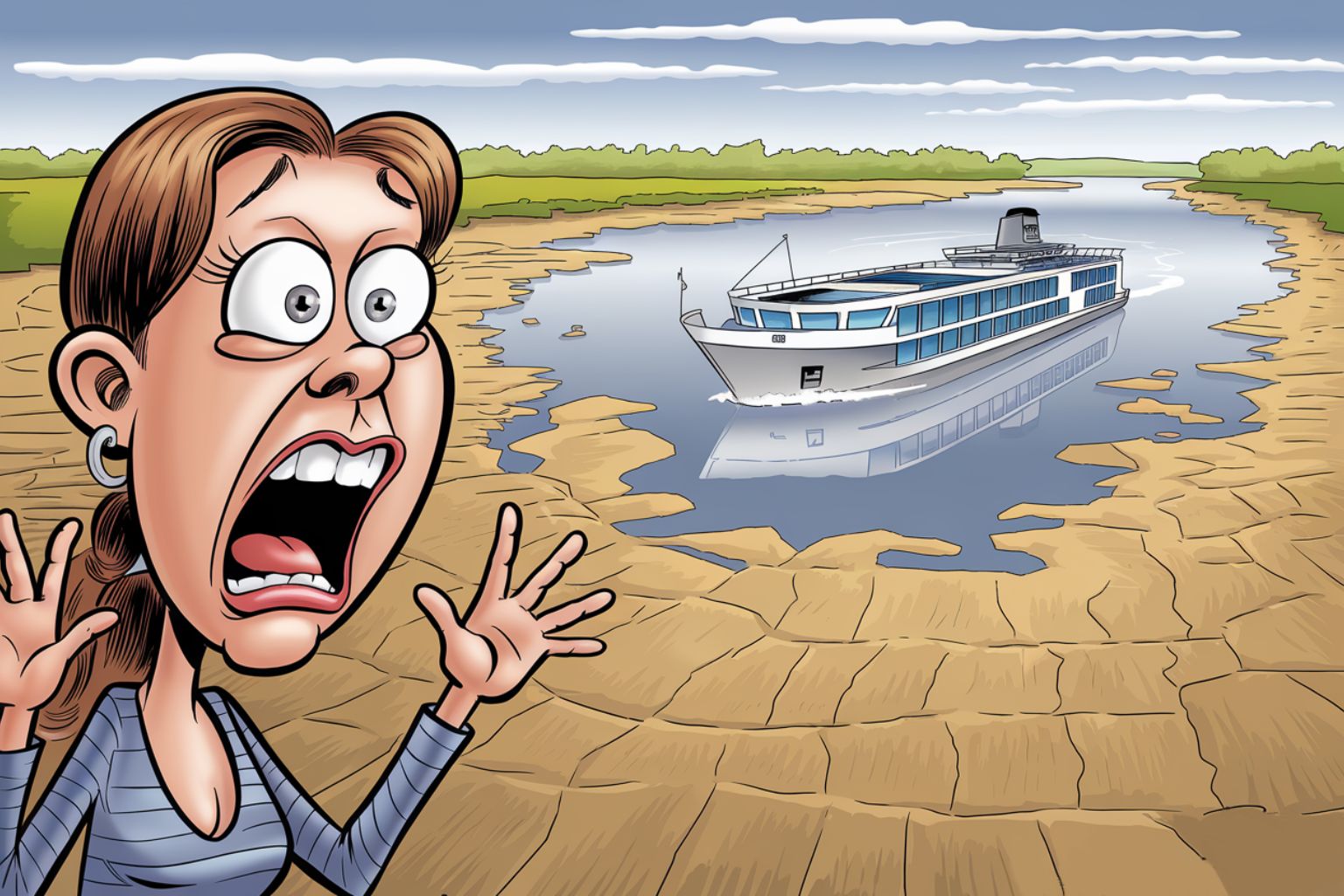Forget everything you think you know about summer. All that talk about this being the busiest and most expensive summer ever and how you ought to book now — well, that’s just talk.
The conventional wisdom about summer travel has been turned on its head in recent days. Knowing about this could save you a little money and a lot of trouble.
What’s everyone expecting? A survey released last week by the American Society of Travel Advisors suggests everyone wants to travel next month. Almost half of Americans ranked a vacation as their number-one discretionary spend, and one-third plan to travel abroad this summer. Americans are on track to spend a record $200 billion, according to Allianz Partners.
“Travel is experiencing an unquestionable resurgence,” says Laurel Greatrix, a spokeswoman for Viator. The company’s research, released last month, predicts travel will finally return to pre-pandemic levels and that Americans are looking for an adventure.
But attitudes are shifting, say insiders. Travelers are uncertain about their upcoming plans. Bank failures, a cooling economy, and other economic worries are weighing heavily on summer travel plans. There’s a sense that anything could happen. It might be as busy as everyone predicts, but it might not.
So what does that mean? I asked the contrarians.
No reservations for summer travel
You’ve probably heard the drumbeat of experts claiming this will be a sold-out summer. But Shelley Hunter, an innkeeper from Quincy, Calif., has been watching the reservations for this June, July and August, and she says that’s nonsense.
“People are not making advanced summer plans,” she says. “I predict tourist travel to our destination will be a last-minute decision.” Yep, just like the summer of 2021, when travelers were on the fence until the very last minute. And that was a pandemic recovery year, with plenty of deals to be had. (Here’s our guide to traveling this summer.)
She’s not the only one. I’ve talked to numerous people in the tourism industry who say their customers are still on the fence about taking a summer vacation. (Related: 6 consumer mistakes you absolutely have to avoid this summer.)
Travel fatigue?
It’s not just the uncertain economy that’s leading to weaker demand for travel this summer. People are just tired of the make-up trips they did in 2021 and 2022, so they need a break. At least that’s what Christopher Falvey, co-founder of Unique NOLA Tours in New Orleans, told me.
“I think we can expect a temporary crash because there are no more people looking to travel,” he says. “They spent their allotted time and money.”
How much of a crash? “I expect this summer to be as dead as it’s been in a long time,” he says.
Pay upfront
Travel companies, and especially hotels, went soft on us after the pandemic. They refunded nonrefundable rooms and waived fees to get you back in the door. Not anymore, say experts.
Travel advisor Heather Herbert says more hotels will require prepaid, nonrefundable reservations. “We are already seeing this,” she says. (Related: This summer, airlines takes “ridiculous” to the next level.)
No one tracks refund rules in the travel industry, but there’s plenty of anecdotal evidence that airlines, hotels and vacation rental hosts are tightening their refund policies to require you to pay upfront and lose everything if you cancel. That might make people think twice before making vacation plans.
Watch out for disruptions, summer travelers
If you expect smooth sailing this summer, think again. Rajeev Shrivastava, CEO of VisitorsCoverage, an insurance marketplace, predicts the recent increase of flight cancellations and other operational issues resulting from strikes or inclement weather conditions will continue throughout the summer.
“Now more than ever, travelers need to prepare well for unpredictability,” he adds.
A summer of dangerous travel?
If you’re traveling internationally this summer, things might also get a little dicey. That’s particularly true if you’re headed to places that have a reputation for being volatile, like the Middle East.
Lately, there’s been a steady stream of incidents in Israel, and experts say they could worsen as the summer travel season begins. (Related: Viator canceled the tour. I want my money back.)
“Travelers to some regions should expect increased terrorist attacks,” warns Brandon Frady, a licensed insurance agent with Clearsurance.com.
Customer service is circling the drain
Here’s something else almost no one is discussing. Customer service is circling the drain in the travel industry, and especially for airlines (77,656 airline complaints in 2022, up 55% from the year before). It took the Department of Transportation more than three months to release the number of airline grievances, which set a post-pandemic record.
Julie Ann Hartgett, a travel advisor and frequent traveler, says she’s shocked by the lack of service, which she predicts will worsen this summer.
“I think the general public is under the impression that service and quality have gone back to normal,” she says. “This is not the case.”
Just last week, she stayed at a resort that had two luggage carts for more than 300 rooms. She carried her own luggage to her room. She said no one answered when she called the front desk.
“It was pointless,” she says.
What will really happen this summer?
Does anyone really know what will happen this summer? Of course not.
For all we know, the early projections could be correct. It could turn into a free-for-all with wall-to-wall crowds and record-high prices. Then again, we might be looking at a last-minute pivot to a calmer and less expensive vacation season.
I’m hoping for less drama. We had so much craziness last summer, with airlines forgetting how to take care of their customers and hotels raising their rates through the roof, I think we’re entitled to just one sane summer.
Expedia predicts 2023 will be the year of “no-normal” travel. Although it defined no-normal as people traveling the way they want to, as opposed to the way everyone else is, the no-normal label seems appropriate for this summer.
Maybe not in the way Expedia meant it, but there’s no question that this summer will be anything but normal.
Elliott’s summer travel tips
I’ve been on the road every summer since I can remember, and I suspect this summer will be like no other. Here’s how I’m handling it:
Don’t plan too far ahead. Only a few days ago, the conventional wisdom was to book now or lose any chance of a summer vacation. But it looks like demand could weaken during the summer, especially if the economy cools. Good things may come to those who wait.
Look for early sales. If people stay home, there will be sales. Usually, we see fare sales in the middle of summer as bookings slow down. This year, if the current trends hold, the sales could start sooner than usual and could be more aggressive. Be patient.
Avoid the hotspots. Unless the economy takes a significant turn for the worse, all the places that are normally crowded will be even more crowded this summer. Domestically, Orlando, Las Vegas, and New York will be sold out; internationally, it’s Paris, London and Rome. Visit these places during the early fall when the crowds dissipate.
And on a different note, remember my advice on finding lost items this summer.
What do you think about the upcoming summer travel season? Will it be one for the record books, or are you staying home? Which of the contrarians in this story is correct? The comments are open.




